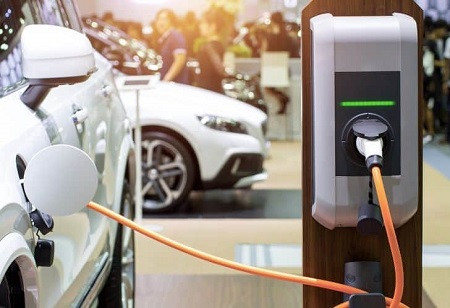
The rising popularity of electric vehicles is a major driver of current demand for electric motors (EVs). Alternative forms of transportation that are friendly to the environment are becoming more and more necessary as a result of how heavily reliant conventional internal combustion engine (ICE) vehicles are on fossil fuels. Because they offer a cleaner and more environmentally friendly alternative, electric-powered vehicles (EVs) have seen a notable rise in popularity recently. Businesses are now making sizable investments in R&D to produce more potent and effective electric motors in order to meet the growing demand. The policies and incentives being put in place by governments around the world to encourage the use of electric vehicles are also increasing demand for advanced electric motors. As a result, the future of transportation seems to be moving in a more sustainable and environmentally friendly direction, with electric vehicles and their cutting-edge electric motors at the forefront.
Here are some significant ways that electric vehicles (EVs) are stimulating the demand for advanced electric motors:
Electric motors are inherently more efficient than ICEs. They convert a higher percentage of electrical energy into mechanical energy, resulting in improved performance and acceleration. In order to increase the driving range and overall performance of EVs, manufacturers are calling for more sophisticated electric motors that can produce more power and efficiency. Apart from that, improvements in electric motor technology have been brought about by the rising demand for EVs. Manufacturers are spending money on R&D to develop motors that have more torque and power, enabling faster acceleration and better performance all around. Due to the focus on performance and efficiency, electric motors are now smaller and lighter, which makes them perfect for use in EVs. As a result, as the EV market grows, so does the demand for innovative electric motors.
EVs rely on batteries to store and provide electric power to motors. EVs can accommodate more potent electric motors without compromising range as battery technology develops with improvements in energy density and cost reduction. This increases the need for electric motors that can make the most of these cutting-edge batteries. Electric motor efficiency and the ability to get the most out of these high-tech batteries are two things that manufacturers are constantly working to improve. As a result, lighter, more compact electric motors with higher power outputs have been created. Furthermore, improvements in battery technology have made it possible to incorporate regenerative braking systems, further increasing the effectiveness and range of EVs. The industry's desire to push the limits of electric vehicle performance and range will therefore drive up demand for cutting-edge electric motors.
EVs utilize regenerative braking technology to recapture and store energy while slowing down or braking. Regenerative electric motors that are state-of-the-art can repurpose kinetic energy into electricity and recharge the batteries. This increases EVs' overall efficiency and increases their driving range. Modern electric motors are being made even more capable by improvements being made to regenerative braking systems that optimize energy capture and storage. With the help of these advancements, EVs can recover more energy during braking, extending their range and lowering the need for external charging. Regenerative braking technology will continue to revolutionize the effectiveness and performance of electric vehicles with continued research and development.
The prominence of autonomous driving technology has raised the demand for responsive and precise electric motors. These motors are requisite for features like self-parking, adaptive cruise control, and lane-keeping assistance. Electric motors are also essential to the safety of autonomous vehicles, in addition to these advanced driving features. They can respond quickly to sudden changes in the environment and deliver instant torque, which helps to prevent accidents. The need for electric motors that can handle the demanding specifications of this industry will only grow as autonomous driving technology develops. Electric motors will undoubtedly play a significant role in determining the direction of transportation with continued innovation.
In conclusion, the widespread adoption of electric vehicles has significantly increased the demand for top-notch electric motors. In a Deccan Herald article, Virendra Goyal, Tata Power, the Head of business development (EV Charging), was quoted - Tata Power is betting big on the electric vehicle revolution, with an ambitious plan to install 7,000 charging stations by the end of this fiscal. As the EV market continues to expand, manufacturers will continue to invest in motor technology research and development, driving further advancements in electric motor efficiency, performance, and sustainability.
We use cookies to ensure you get the best experience on our website. Read more...